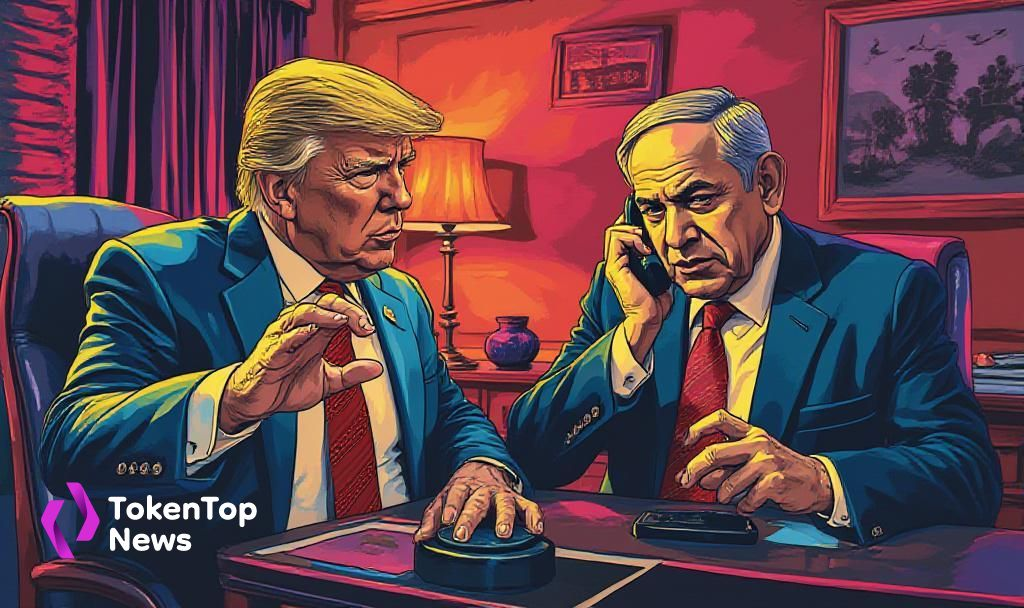Netanyahu Defies Trump’s Iran Strike Cancellation Demand
- Main event, leadership changes, market impact, financial shifts, or expert insights.
- Netanyahu rejects Trump’s Iran strike cancellation demand.
- No immediate impact on crypto markets noted.

Trump and Netanyahu’s tense exchange over the Iran strike highlights geopolitical fragility with potential for broader regional consequences. However, immediate market reactions, especially in the crypto space, remain minimal according to initial reports.
Benjamin Netanyahu, Israel’s Prime Minister, refused former US President Donald Trump’s call for a total cancellation of the Iran strike. Netanyahu insisted on responding to Iran’s ceasefire breach, addressing regional security concerns without a broad attack.
The tense conversation led Trump to urge halting the attack, marking a rare direct public intervention. Despite this, Netanyahu’s position prioritized limited military action, focusing on targeting a specific radar installation.
“ISRAEL. DO NOT DROP THOSE BOMBS. IF YOU DO IT IS A MAJOR VIOLATION. BRING YOUR PILOTS HOME, NOW!” – Donald Trump, Former President of the United States.
The geopolitical move had some impact on traditional markets, with S&P 500 and oil futures reacting positively to news of the ceasefire. However, crypto assets such as ETH and BTC were largely unaffected, based on verifiable data and available analytics.
Financial markets showed subdued reactions within the crypto sector, highlighting limited influence on related assets. Discussions among decentralized tech communities and crypto influencers did not significantly increase, reflecting the event’s minimal direct impact.
Insights into the event suggest potential regulatory shifts if geopolitical tensions escalate. Historical precedents show prolonged conflicts impacting commodities such as oil, yet crypto markets often remain more tethered to digital ecosystem narratives and internal developments.




